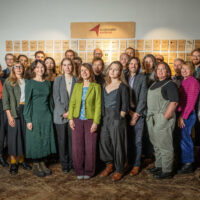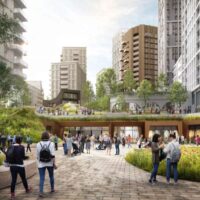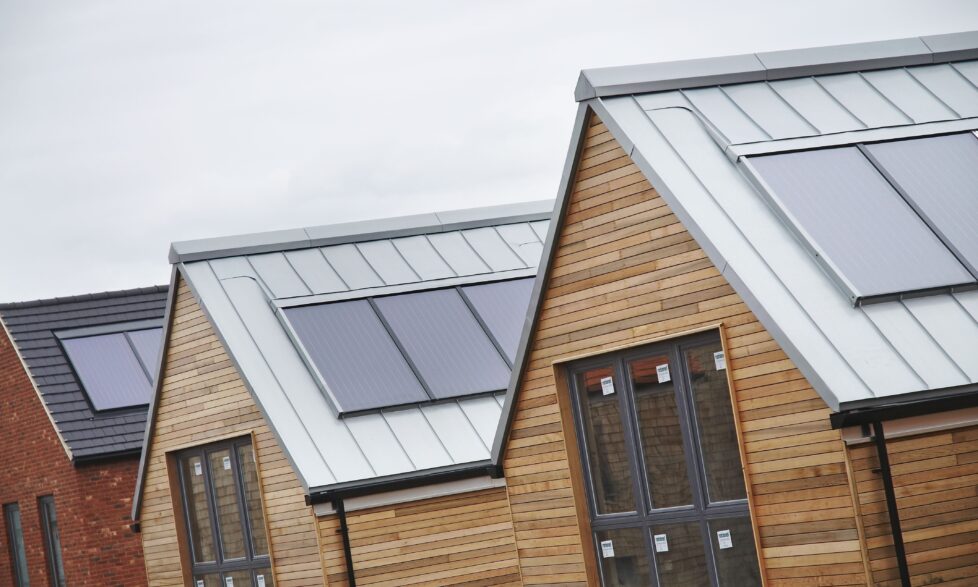What makes an eco-town
Drawing on Bioregional’s work on building sustainable settlements, and CABE’s understanding of what it takes to create workable and sustainable places, What makes an eco town? challenges the eco-town proposers to be as ambitious as they can. It sets out clear sustainability criteria against which the proposers can judge their plans, and offers ways to monitor progress. The report is inspired by the government-appointed eco-towns advisory panel, as well as by Bioregional’s ‘One Planet Living’ approach. It seeks to show how all developers, not just the eco-town proposers, can build in sustainability.
This report was written in answer to the question ‘what makes an eco-town?’. Across the world, there have already been a number of trailblazing initiatives, including exemplary European sustainable communities such as Vauban in Freiburg and Hammarby Sjöstad. We can also learn from smaller eco-communities in the UK like BedZED and Great Bow Yard. These projects are great examples, but eco-towns should be the next step forward, building on what has been learnt. The need for settlements which show what our towns and our daily lives will be like if we live sustainably has never been more urgent. Eco-towns must therefore demonstrate real and measurable sustainable living. They should encourage and allow people to live within ecological limits whilst enjoying a high quality of life in an attractive environment.
The report has been prepared by BioRegional and CABE in response to the eco-towns proposals, as guiding principles to help achieve these quality aspirations. This is particularly to assist the consortia involved in the development of those schemes and provide more detailed information for government, which is charged with delivering the policy. We hope the standards and criteria outlined will be useful when considering the development of all new neighbourhoods or urban extensions, not just ecotowns. We think they will also be useful to anyone who wants to understand more about how we might live more sustainably and still have a high quality of life.
Eco-towns should be places where it is easy for residents to adopt sustainable lifestyles. This means that the choices offered across all aspects of living and working need to be sustainable ones. Developers need to put in place the foundations to enable this. These will include energy efficient buildings, renewable energy, resource efficient infrastructure and proximity to employment and services. It should also include access to sustainable lifestyle options, services and information to make it the everyday ‘default’ for residents to choose a more sustainable way of living in the eco-town.
Whilst the focus of this report is on environmental sustainability, eco-towns must also address social and economic factors if they are to be successful. Sustainability is about more than resource efficiency: sustainable communities will be well designed and will foster social and economic sustainability. Often the issues are interwoven. For example, sustainable transport options such as cycling and walking reduce environmental impact but also bring benefits for personal health and well-being; walkable communities encourage social connection; car clubs are a new service industry that create sustainable jobs and reduce transport impacts. It is vital that the eco-towns work well as places. This means in social and economic terms as well as environmental.
Our aim is to provide a clear illustration of the core issues that will affect whether a proposal is good enough to be an eco-town, and the criteria against which this can be measured.
What we are presenting here is not a prescriptive list of required methodologies, but the strategic decisions which have fundamental consequences for a sustainable settlement’s development. Each consortium should investigate these and deliberate on them, so that they achieve the highest-quality outcome. Finally, it should be noted that this document provides our perspective on the early stage of the proposals. The advice and recommendations should be read with this in mind.




